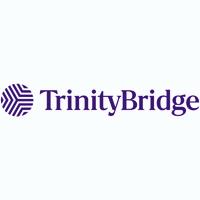Five ways to help your employees boost their numeracy and improve their financial wellbeing

So, unless your organisation is an accountancy firm, or another kind of highly numerate business, there’s a high chance that at least some of your staff don’t feel confident using numbers and data to make good decisions in daily life, including in the workplace.
The high cost of getting numbers wrong
Poor numeracy is thought to cost the UK economy (the Exchequer, employers and individuals) £20 billion a year. That figure might seem incredible, but employees who are unable to calculate a discount or a mark-up, or who struggle to interpret even the simplest of spreadsheets, effectively pose a risk to their organisation’s profit margins and budgeting processes.
What’s more, being innumerate has implications for the financial wellbeing of individuals, since it is thought to cost them £460 a year on average. This is a heavy cost to bear, especially right now, given that Close Brothers’ Expecting the unexpected financial wellbeing research found that a quarter of UK workers (23%) have seen their financial health worsen during the Covid-19 pandemic.
Here are some practical – and, in many cases, fun – suggestions to share with staff who want to improve their confidence with numbers.
1. Enter the National Numeracy Challenge
The National Numeracy Challenge is a free and easy-to-use website that employees can use to boost their confidence with numbers. It’s a convenient way for them to improve the maths they need in daily life, including at work, using their smartphone, tablet or home computer.
2. Use numeracy apps
The app stores are awash with apps that are designed to improve adults’ maths skills. Some options include Star Dash Studios, SumQuest and Khan Academy. For the young at heart, or for parents who want to help their children with numeracy, there are also plenty of fun maths apps aimed at kids.
3. Get Skillswise
BBC Skillswise offers adults free videos and worksheets to help improve their numeracy, as well as their reading and writing skills.
4. Sign up for an online training course
Various educational institutions and training providers offer online training in numeracy, with some courses being free. Loughborough University, for example, is offering a free online course titled ‘Numeracy Skills for Employability and the Workplace’. The Open University also offers a free course called ‘Everyday maths 1’, which takes 48 hours to complete and gives students the opportunity to earn a digital badge.
5. Play a game
Taking a break from the screen, the humble pack of playing cards can be a great tool for improving numeracy. There are lots of fun suggestions for games on the internet that can be played at home with family or friends, and it’s not just card games that can help your employees overcome a fear of numbers either – the dice game Yahtzee is also a great way to practise maths skills.
There’s plenty that employers can do to promote numeracy within their organisations – both formally (by running inhouse numeracy programmes) and informally (by sharing suggestions such as the ones outlined above). Nevertheless, it’s important to be sensitive about broaching the topic, as employees who struggle with numeracy often feel inadequate and won’t necessarily want to highlight their struggles to peers.
Ultimately, improved numeracy brings many benefits to both organisations and individuals. Organisations are more likely to grow both their top and bottom lines if they have employees who can perform basic calculations, manage budgets effectively, and analyse trends and patterns in numbers.
Similarly, individuals are more likely to enjoy career progression, higher pay packets and greater self-confidence in the workplace if they are able to use numbers effectively and develop mathematical problem-solving skills. All round, there are plenty of reasons to improve numeracy in your workplace – and lots of ways to do it.
This article is provided by Close Brothers.
Supplied by REBA Associate Member, TrinityBridge Limited, formerly Close Brothers Asset Management
TrinityBridge has been delivering workplace financial wellbeing programmes to some of the UK’s best-known employers for over 55 years.







